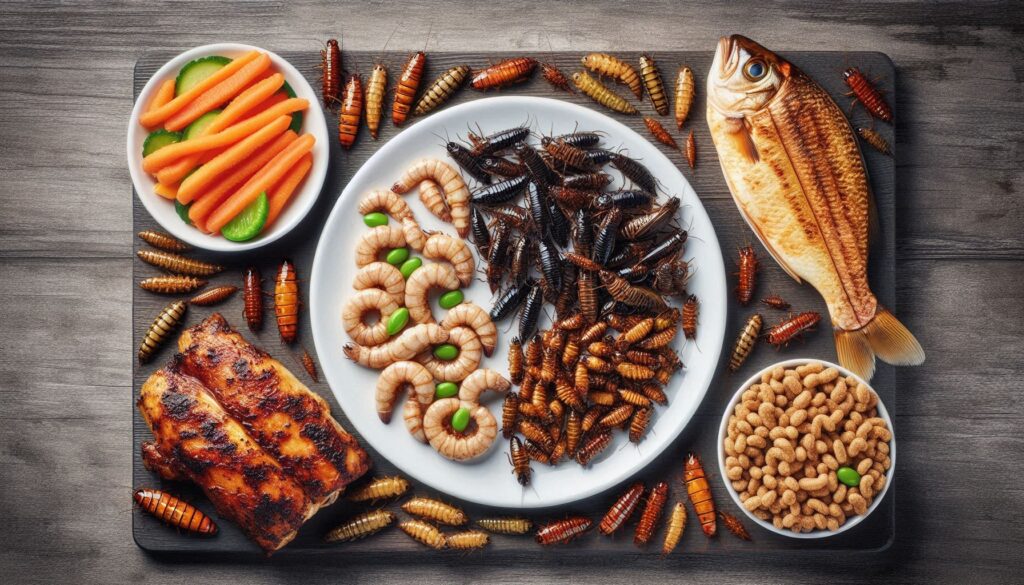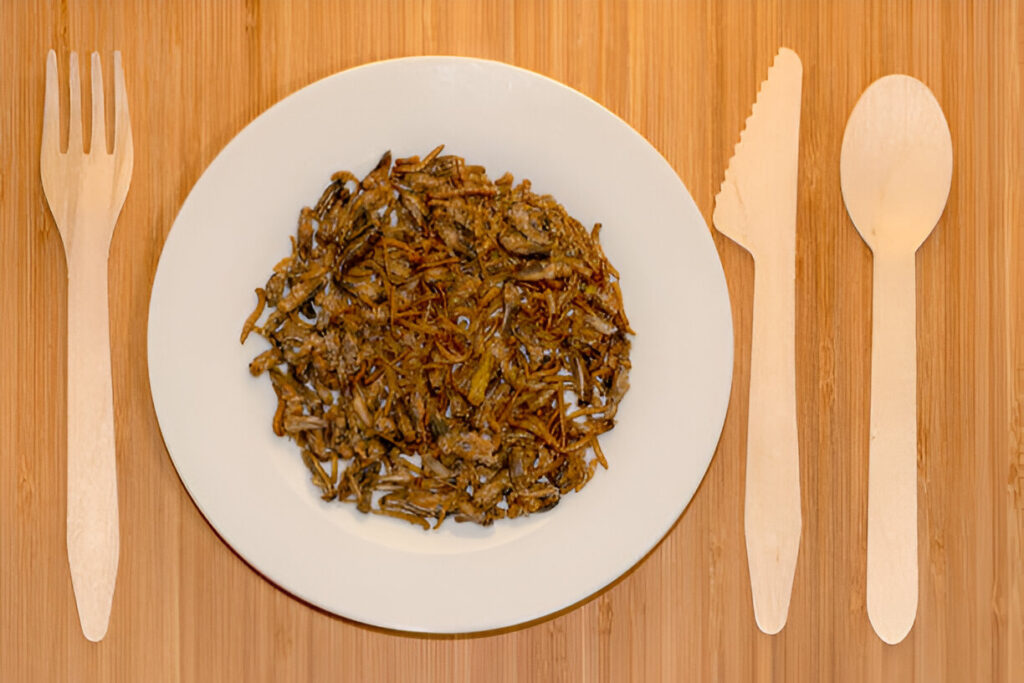The Real Protein Champ: Insects vs. Regular Meat
If you still think fish and chicken are the best protein sources, think again! Insects are an incredible source of protein, often surpassing traditional meats. Here’s why:
Protein Comparison: Insects vs. Traditional Meat
Insects can provide more protein per 100 grams compared to conventional meat sources:
- Crickets: 65 grams of protein
- Mealworms: 50 grams of protein
- Grasshoppers: 70 grams of protein
- Chicken: 25 grams of protein
- Fish (salmon): 20 grams of protein
Insects clearly pack a higher protein punch, making them a potent and efficient alternative, especially where traditional meats are scarce or costly.

Nutritional Benefits Beyond Protein
Insects are not just rich in protein; they also offer a range of essential nutrients:
Vitamins
Insects like crickets are high in B vitamins, crucial for energy production and brain function.
Minerals
They are rich in iron, magnesium, and zinc, essential for various bodily functions.
Healthy Fats
Many edible insects contain beneficial omega-3 and omega-6 fatty acids, contributing to overall health.
Production and Reproduction: The Efficiency of Insect Farming
Think chicken and fish are easy to breed and process? Insects are even better.
Space Efficiency
Insect farming requires minimal space compared to traditional livestock:
- Cattle Farming: 50 to 200 m² needed to produce 1 kg of protein.
- Insect Farming: Only 5 to 15 m² needed for the same protein amount.
This efficiency is critical as concerns about land use and sustainability grow.
Breeding and Growth Rate
Insects have rapid breeding and growth cycles:
- Crickets: Mature in 6 to 8 weeks, laying around 100 eggs.
- Mealworms: Can produce several hundred offspring in a few months.
- Black Soldier Fly Larvae: Convert organic waste into protein-rich biomass in weeks, with females laying up to 600 eggs.
This quick reproduction allows for a scalable and reliable protein source.
Feed Conversion Efficiency
Insects require less feed to produce the same amount of protein compared to traditional livestock:
- Insects: Crickets need only 1.7 kg of feed for 1 kg of protein.
- Cattle: Require about 8 kg of feed for 1 kg of protein.
This efficiency saves space and resources, making insect farming more sustainable.
Should I Start Eating Insects?
Considering adding insects to your diet involves more than just health benefits. Let’s explore the religious, ethical, and practical aspects of eating insects.

Religious Perspectives
Insect consumption varies across cultures and religions:
- Hinduism: Generally vegetarian, making insect consumption less likely.
- Islam: Some insects are considered halal, but opinions vary.
- Christianity: Insects are mentioned in the Bible, with some permissible to eat.
- Buddhism: Often vegetarian or vegan, typically excluding insects.
These perspectives can influence individual openness to eating insects.
Ethical Considerations
Insect farming raises ethical questions:
- Animal Welfare: Debate exists on insects’ capacity to feel pain and the ethics of farming them.
- Environmental Impact: While more sustainable than traditional livestock, concerns about habitat disruption and biodiversity must be addressed.
Practical Concerns
Despite benefits, practical concerns exist:
- Disease Transmission: Rapid reproduction can lead to disease if not properly managed.
- Regulatory Standards: Ensuring safety standards for insect products is crucial.
Personal Choice
Though practiced by limited groups, trying insects can be a personal choice. Start with regulated and properly prepared products for safety.
Conclusion
The decision to start eating insects involves weighing health benefits, religious and ethical perspectives, and practical concerns. Insects offer a sustainable protein source, but all aspects should be considered before making a decision.
Stay curious with Tales and Tadka – Until next time!


